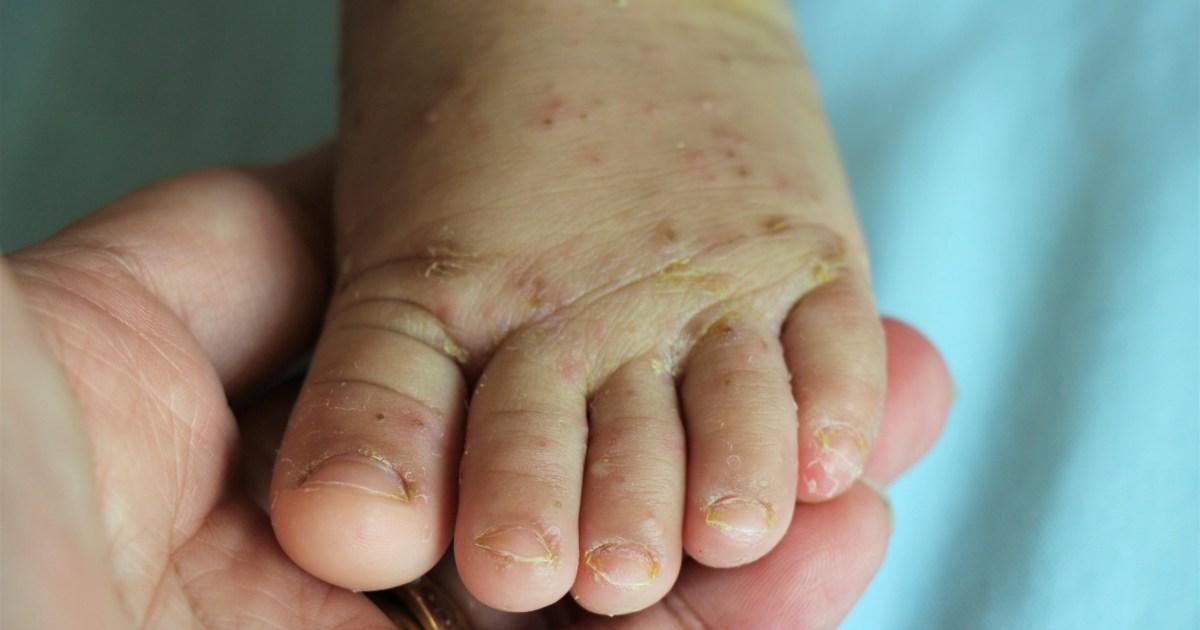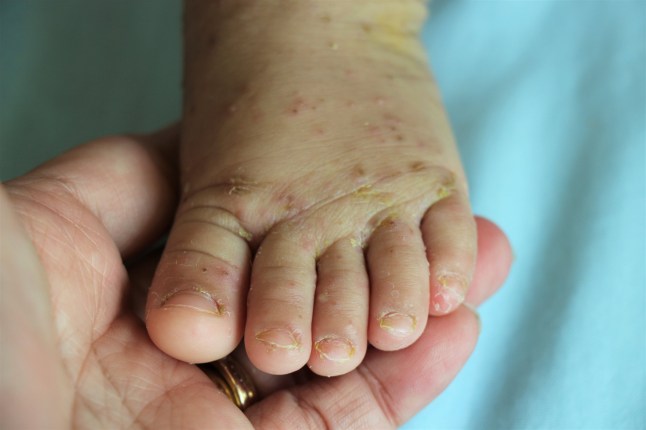
Scabies causes bumps on the skin and itchiness (Picture: Shutterstock/DonyaHHI)
A mum has described the horror at hearing she had contracted a medieval skin disease that’s surging in the UK.
Amanda Rushton, from Accrington in Lancashire, learnt she had scabies and it took over nine months to get of the mites that cause it.
The mum-of-two had initially assumed she had an allergy after noticing small bumps on her arms and side.
Within days the itching got so bad it felt like her ‘flesh was crawling’, but she put off going to the doctor assuming it would go away.
After a month, however, when the bumps and itching were still there she sought medical help.
Sign up for all of the latest stories
Start your day informed with Metro’s News Updates newsletter or get Breaking News alerts the moment it happens.
She says the doctor recognised it was scabies immediately.
It turned out she had caught the highly infectious infestation of microscopic mites from her mum who had been in hospital, reports the Daily Mail.
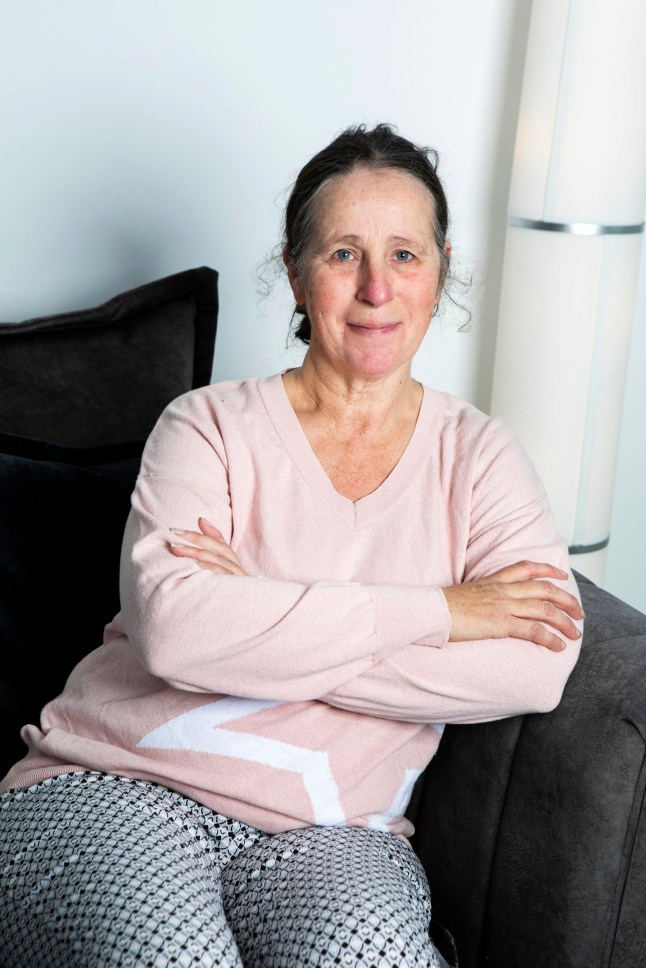
Mum Amanda Rushton, 54, spent months trying to get rid of scabies (Picture: Lucy Ray Photography)
‘I literally recoiled when the doctor told me,’ she says. ‘I thought that was some archaic disease soldiers got, or people in camps, not normal clean people. He said it was rife lately in the UK.’
Scabies is caused by sarcoptes scabiei, a mite that’s invisible to the naked eye, which burrows under the skin to lay its eggs, leaving microscopic faeces.
It’s the eggs and the faeces that causes the skin to react and feel itchy.
People often associate scabies with poor hygiene but it’s actually spread through close contact, allowing the mite to transfer from one person to another.
There is often a rise in cases in October and November, in part because people are inside more, but also due to students heading to university and living in close quarters.
‘We are seeing a noticeable rise in cases of scabies in Central London at the moment but also across the UK in general,’ Dr Tony Banerjee, a GP at HarleyDoc, based in Harley Street, told the Daily Mail.
The rash and the intense itching will usually take between four to seven weeks to develop after infection, and is often most severe in the ‘web’ spaces between fingers, wrists, thighs, buttocks, soles of feet, armpits and genital region, according to Dr Fraser.
The sooner scabies are treated the better, and the less likely it is that the infection will be passed on to others.
However, the rash can be difficult for non medical professionals to identify as they can look like insect bites or an allergic reaction.
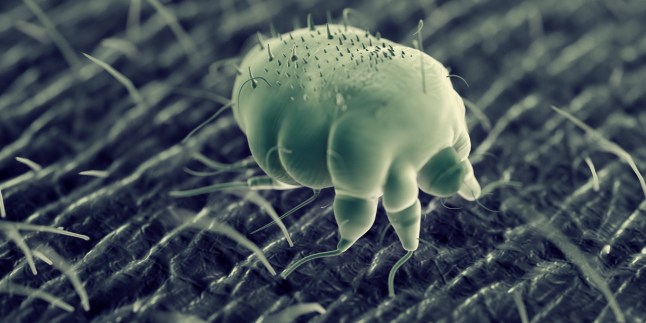
Scabies are caused by a mite called sarcoptes scabiei that burrows in to the skin
(Picture: Shutterstock/3dMediSphere)
Left untreated scabies, can unfortunately continue for months or even years and can also lead to a secondary infection of scabies lesions.
Even when treated, as Amanda found, the mites can be difficult to get rid of.
The 54-year-ol was initially prescribed an insecticide called permethrin that has to be applied to all over the body.
Amanda used the lotion on herself and her children, and washed all her bedding, linen and sofa covers.
‘It was really stressful,’ she said. ‘It was like a laundrette. I had bags and bags of things being washed, things in “quarantine” that couldn’t be washed, and then had to steam clean the carpets too. It was a nightmare. I was embarrassed and paranoid.’
Amanda used two applications a week apart but within days she noticed the red marks and itching had returned.
She noticed her 13-year-old son, who is Down’s syndrome, had marks now too.
The doctor gave her more cream, and she repeated the same procedure, including all the washing, while also caring for her sick mum and trying to soothe her son.
She said she felt like she was going insane.
Weeks later, with the mites still not gone, she went back to the GP who suggested she try Derbac, a liquid treatment containing malathion, another insecticide, which is available over the counter.
This, however, didn’t work either, so feeling desperate she joined a scabies group on Facebook where, she says, there were hundreds of people like her ‘at their wits end’.
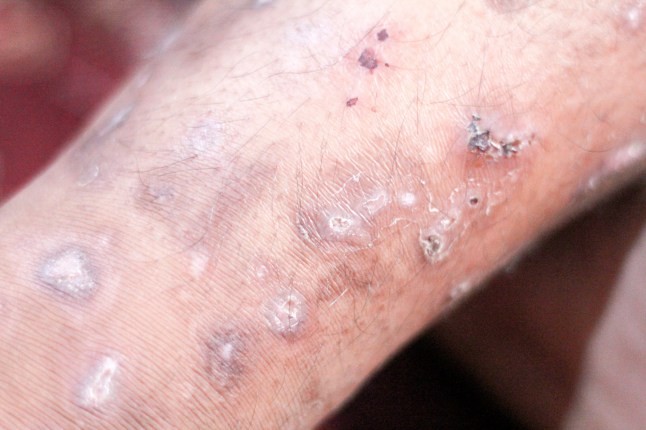
Marks caused by scabies (Picture: Shutterstock/Muhammad Hasan Faiz)
After two months and the whole family itching, Amanda returned to her GP who told her to keep using the cream and that scabies was ‘rife’.
‘My life was being ruined,’ she says. ‘I was scared to leave the house, scared to put clothes on in case they were infected, washing everything constantly.’
After nine months of suffering, Amanda decided to buy an insecticide online she’d heard about called benzyl benzoate online, which is used to treat scabies, but not routinely offered by GPs.
Finally, after applying the treatment the itching stopped and all was fine for three months.
Then three months later, in June this year, her son started itching again.
Amanda says she broke down, and couldn’t stop crying. But thankfully, after using the benzyl benzoate and treating the house again, they have since been mite free.
Some research suggests that mites are showing a growing resistance to common scabies treatments such as permethrin.
The National Institute for Health and Care Excellence (NICE) say doctors can consider using ivermectin, an oral anti-parasitic medicine, if topical treatments have failed.
One GP, Dr Steve Taylor in Manchester and co-lead of the Doctors’ Association said he has been prescribing ivermectin as patients had returned multiple times to say the scabies had not gone away.
Amanda’s 80-year-old mother died in January from sepsis and heart and kidney failure after a tumour was found in her stomach.
Although scabies did not directly lead to the sepsis, Amanda thinks it contributed to her death.
She says she wishes she had realised what was going on sooner and is now speaking out to raise awareness.
You can find out more about scabies in our explainer here.
Get in touch with our news team by emailing us at webnews@metro.co.uk.
For more stories like this, check our news page.
Arrow
MORE: Mum burned boy with cigarettes and fed him dog food in campaign of abuse
Arrow
MORE: As a single gay man, here’s how I take control of my sex life
Arrow
MORE: If you can do these 5 things in your 30s, your brain is in great shape
Comments
Add Metro as a Preferred Source on Google
Add as preferred source
News Updates
Stay on top of the headlines with daily email updates.
